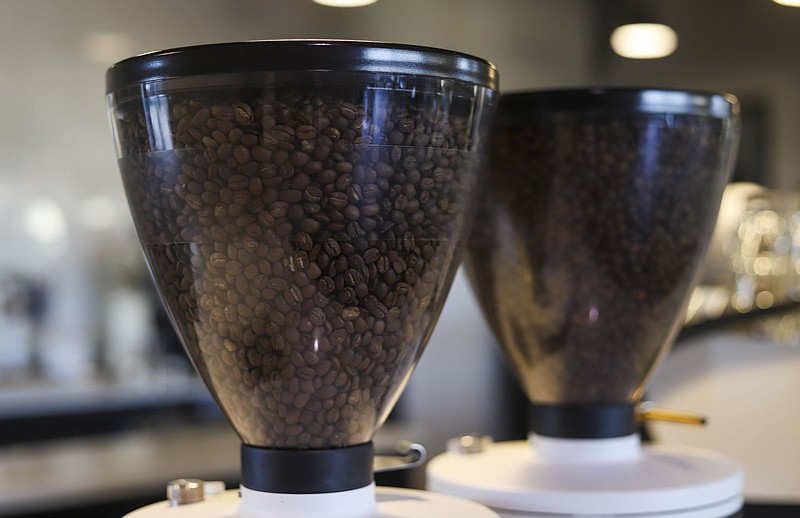As do-gooder stories go, this one is a keeper: Chattanooga area church opens a coffee shop with no crosses, no symbols, no proselytising, no pressure to become a church goer or member. After a few years it makes a profit of $34,000 and turns the money around to help other local ministries - ministries that help fix leaky roofs, ministries that build homes, ministries that help children and teens and many others.
It is the story of Silverdale Baptist Church's Oaks Coffee House, which many don't even know is connected to the church, and that's intentional. Sell things, help people.
And those helped - actually seven other local ministries that each in turn helps people - were Adult & Teen Challenge MidSouth, the Bethlehem Center, Habitat for Humanity of Greater Chattanooga Area, Hope for the Inner City, Tennessee Baptist Children's Home, as well as Mission Increase of Chattanooga and Unidos en Compasión through the Generosity Trust.
Yep. It's a heart-warming keeper example of humans using common sense to help more humans.
Meanwhile, Tennessee and Georgia lawmakers, majority Republican, seem to be on a completely opposite track - one that looks to be anything but a helpful, straight and narrow path.
They're not about helping the needy - or even others who help the needy. In fact, both of those state's general assemblies seem bent on ways to take away, even ban, such help.
Take Georgia's Senate, for instance, which is considering a bill which would ban local governments from using federal dollars to build permanent housing - read here shelters and more - for homeless individuals but at the same time further financially penalize cities that have a higher-than-average homeless population. And it would make it a misdemeanor for a homeless person to take/make a shelter on state property - like a park or right-of-way or under an overpass.
Not only would the bill criminalize being homeless, but also would make it nearly impossible for cities to help - even in a time when more people are homeless because of lost jobs during the COVID-19 pandemic. Georgia would strip federal funds from cities - especially Atlanta - if city leaders attempt to use the American Rescue Plan relief funds, some of which were intended for this very purpose.
Proponents of Georgia's "Reducing Street Homelessness Act" claim the bill seeks to reduce the number of homeless individuals on the streets in Georgia by pressurising local governments to take more action.
How? With higher property taxes? Higher sales taxes?
Pull the string on this a little.
Isn't the solution to homelessness to get people housed - really housed, not just shifted from tent to shelter to another shelter to another tent? Of course it is. And doing that is not by arresting a homeless person sleeping in a right of way or - as Ringgold tried to do some years ago, outlawing stoves and tents given to or carried by homeless people. And homelessness certainly won't be eliminated by taking away the resources offered to cities that try to help.
If Chattanooga were in Georgia, a city council vote in October to spend nearly $3 million to purchase the Airport Inn on Lee Highway with plans to turn it into a low-income housing and assistance facility couldn't happen if this Peach State bill passes. Chattanooga is purchasing the 74-room hotel with funds from the American Rescue Plan Act of 2021.
That's not to say Chattanooga doesn't have other efforts in play. The city will allocate $100,000 - unspent money from its existing homeless budget - as incentives to wary landlords who may not want to rent to people who've been homeless. The money will be something of an insurance program to help pay for repairs or cover the cost of damages up to $7,500 per claim, should any arise from a homeless person the city places in Section 8 or other rental units with the aid of its housing navigators.
But Georgia's obstruction to common-sense fairness and good deeds hasn't stopped at the state line. Our Volunteer State lawmakers are always busy building their own roadblocks to neighbors helping neighbors. They tried a similar effort last year to criminalize poverty with a bill to make it a felony to "camp" on any public property, including that owned by local governments. Remember, there already are trespassing laws that come to bear on private property. So the effect would be to criminalize a homeless person sleeping. Period. The bill failed. So far.
But now Tennessee lawmakers wants to target a fairness measure that has nothing to do with homelessness - but with minority businesses. They would outlaw minority contracting programs in state and local governments, school boards, public universities and similar government organizations statewide.
A study from the Tennessee Advisory Commission on Intergovernmental Relations concluded Black businesses had received only about 3.3% of state procurement contract money in 2016-2020, and that was an increase from a few years earlier: In 2003-2007 it was only 0.4%.
Apparently helping out - and even trying to be fair - is getting out of hand.
Shame of our state governments. Would that they might take a lesson from Silverdale Baptist Church.
